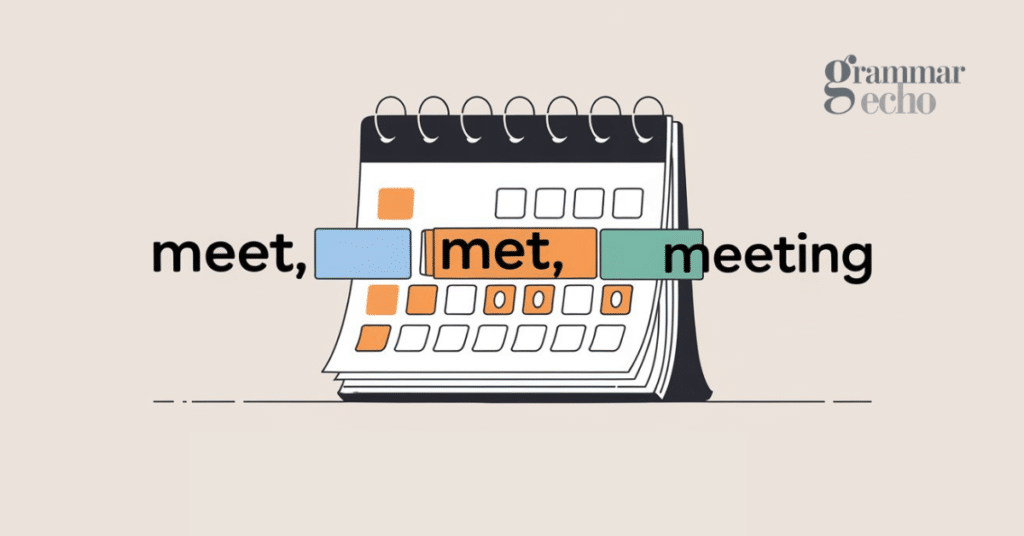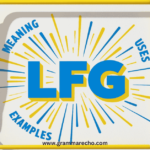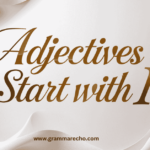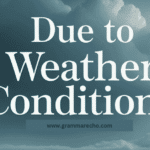Ever found yourself tongue-tied when talking about a past encounter? You’re not alone. The past tense of meet often trips up even seasoned English speakers. In this deep dive, we’ll unravel the mystery of “meet” vs. “met,” explore their proper usage, and arm you with the knowledge to wield these verbs with confidence. Whether you’re a grammar enthusiast or just looking to polish your English skills, this guide will help you master the irregular verb “meet” and its tricky past tense form.
The Evolution of “Meet”: From Old English to Modern Usage
Before we jump into the nitty-gritty of verb tenses, let’s take a quick trip down etymology lane. The word “meet” has quite a journey under its belt, evolving from Old English to the versatile verb we use today.
A Brief History Lesson
The word “meet” traces its roots back to the Old English “metan,” meaning to find, find out, or encounter. It’s related to the Old Norse “moeta” and the Gothic “gamotjan,” all stemming from the Proto-Germanic “motjanan.”
Over time, the meaning of “meet” expanded. It went from simply encountering someone to include the sense of coming together by arrangement, assembling for a purpose, or even satisfying a requirement. This evolution reflects how language adapts to our changing social needs and practices.

You Should read: What is the past tense of swing? Is it swing, swang or swung?
Understanding the Various Forms of “Meet”
Now that we’ve got a bit of background, let’s break down the different forms of this chameleon-like verb:
- Present tense: meet, meets
- Past tense: met
- Present participle: meeting
- Past participle: met
Notice something interesting? The past tense and past participle of “meet” are identical: “met.” This pattern is common among irregular verbs in English, which don’t follow the standard “-ed” ending for past forms.
Pronunciation Guide: Nailing the Sound of “Met”
Pronouncing “met” correctly is crucial for clear communication. Here’s a quick breakdown:
- “Met” rhymes with “pet,” “bet,” and “set”
- Phonetically, it’s spelled /met/
- The ‘e’ sound is short, as in “bed”
Common pronunciation mistakes include:
- Elongating the ‘e’ sound (like in “meet”)
- Adding an extra syllable (meh-ted)
To avoid these pitfalls, practice saying “met” in short, crisp sentences: “I met my friend.” “We met at noon.” Remember, it’s one swift syllable!

The Meaning Maze: Exploring the Diverse Definitions of “Meet”
“Meet” is a versatile verb with several meanings. Let’s explore its primary definitions and some idiomatic uses:
Primary Definitions
- To come face to face with; encounter: “I met an old friend at the store.”
- To come together by chance or arrangement: “Let’s meet for coffee.”
- To be introduced to: “I’m pleased to meet you.”
- To experience; undergo: “The team met with success.”
Idiomatic Uses
- “To make ends meet” – to earn just enough money to live on
- “To meet one’s maker” – to die (often used humorously)
- “To meet halfway” – to compromise
Understanding these various meanings will help you use “meet” and “met” more accurately in different contexts.
You Must Read: Traveler or Traveller: Which Spelling is Right?
“Meet” in Action: A Comprehensive Verb Tense Table
To fully grasp how “meet” operates across different tenses, let’s look at a comprehensive verb tense table:
| Tense | Example |
| Simple Present | I meet / He meets |
| Simple Past | I met / He met |
| Simple Future | I will meet / He will meet |
| Present Progressive | I am meeting / He is meeting |
| Past Progressive | I was meeting / He was meeting |
| Future Progressive | I will be meeting / He will be meeting |
| Present Perfect | I have met / He has met |
| Past Perfect | I had met / He had met |
| Future Perfect | I will have met / He will have met |
| Present Perfect Progressive | I have been meeting / He has been meeting |
| Past Perfect Progressive | I had been meeting / He had been meeting |
| Future Perfect Progressive | I will have been meeting / He will have been meeting |
This table showcases the conjugation pattern of “meet” across various tenses, highlighting its irregular nature in the past tense and past participle forms.

When Words Collide: “Meet” vs. Similar-Sounding Verbs
English is full of words that sound alike but have different meanings. Let’s clear up some common confusions:
Meet vs. Mete
- Meet: to come together or encounter Example: “We’ll meet at the park.”
- Mete: to distribute or measure out Example: “The judge will mete out justice.”
Met vs. Mate
- Met: past tense of meet Example: “We met last year at a conference.”
- Mate: to pair for breeding or to match Example: “The zoologist hoped the pandas would mate.”
“Meet” and “Met” in Everyday Language
Now that we’ve covered the technical aspects, let’s explore how these words are used in daily life.
Read Also: What is the Past Tense of See and its Past Participle?
Formal vs. Informal Usage
In formal settings, you might hear:
- “I am pleased to meet you, Professor Smith.”
- “The board of directors met to discuss the merger.”
In casual conversations, you’re more likely to encounter:
- “Hey, nice to meet ya!”
- “I met up with some friends after work.”
Common Phrases and Expressions
- “Nice to meet you” – a standard greeting when being introduced
- “Meet and greet” – an event where people can interact casually
- “To meet one’s match” – to encounter someone equally skilled or talented
Business and Professional Contexts
In the workplace, “meet” and “met” often relate to scheduled gatherings:
- “We need to meet the deadline.”
- “The team met their sales targets.”
- “Let’s set up a meeting to discuss the project.”

Mastering “Meet” in Various Sentence Structures
To truly become proficient with “meet” and “met,” it’s crucial to understand how they function in different sentence structures.
Using “Meet” in Simple Sentences
- Present tense: “I meet my study group every Tuesday.”
- Future tense: “We will meet at the airport tomorrow.”
Incorporating “Met” in Complex and Compound Sentences
- “Although we had never met before, we hit it off immediately.”
- “I met her at the conference, and we’ve been collaborating ever since.”
Tricky Cases: Negatives and Questions
- Negative: “We haven’t met the requirements yet.”
- Question: “Have you met the new manager?”
Beyond “Meet”: Exploring Synonyms and Related Words
Expanding your vocabulary with synonyms can add variety to your language and help you express nuances more effectively.

Synonyms for Different Contexts
- Social context:
- Encounter
- Run into
- Get together
- Business context:
- Convene
- Assemble
- Gather
- Confrontational context:
- Face
- Confront
- Take on
Antonyms and Contrasting Words
- Avoid
- Miss
- Separate
Common Mistakes and How to Avoid Them
Even native speakers sometimes stumble when using “meet” and “met.” Here are some common pitfalls and how to sidestep them:
- Incorrect past tense forms: Some mistakenly say “meeted” instead of “met.” Correct: “We met at the party last night.” Incorrect: “We meeted at the party last night.”
- Misuse in idiomatic expressions: Be careful with fixed phrases. Correct: “Let’s meet halfway on this issue.” Incorrect: “Let’s meet midway on this issue.”
- Confusion with similar verbs: Don’t mix up “meet” with “mete.” Correct: “The judge will mete out the punishment.” Incorrect: “The judge will meet out the punishment.”
“Meet” in Literature and Popular Culture
The verb “meet” has left its mark on our cultural landscape. Here are a few notable examples:
- In Shakespeare’s “Romeo and Juliet”: “For never was a story of more woe than this of Juliet and her Romeo.” (Implying their fateful meeting)
- Song title: “Meet Me in the Middle” by Zedd, Maren Morris, Grey
- Movie title: “Meet the Parents” (2000)
These examples show how “meet” has been woven into our storytelling and entertainment, often signifying pivotal moments or encounters.
Read Also: What Are the Plurals of ‘Ox’ and ‘Fox’?
The Digital Age: How “Meet” Has Evolved in Online Communication
In our increasingly digital world, the concept of “meeting” has expanded beyond physical encounters:
- Virtual meetings: “Let’s meet on Zoom.”
- Social media: “I met my best friend through Instagram.”
- Online dating: “We met on a dating app.”
This evolution reflects how technology is changing our language and social interactions.
Test Your Knowledge: Interactive Quiz on “Meet” and “Met”
Ready to put your new knowledge to the test? Try this quick quiz:
- Fill in the blank: “I _ her at the coffee shop yesterday.”
- True or False: “Meeted” is the correct past tense of “meet.”
- What’s the present participle of “meet”?
- In the sentence “We have met before,” what tense is being used?
(Answers: 1. met, 2. False, 3. meeting, 4. Present Perfect)
Wrapping Up: Key Takeaways for Mastering “Meet” and “Met”
As we conclude our deep dive into the past tense of “meet,” let’s recap the key points:
- “Meet” is an irregular verb – its past tense and past participle are both “met.”
- The pronunciation of “met” is crucial – it’s a short, crisp sound, rhyming with “pet.”
- “Meet” has various meanings, from encountering someone to satisfying requirements.
- Be aware of common phrases and idioms using “meet” and “met.”
- Practice using “meet” and “met” in different sentence structures to increase your comfort and fluency.
Remember, mastering any aspect of language takes practice. Don’t be afraid to use “meet” and “met” in your daily conversations. The more you use them, the more natural they’ll become. And who knows? The next time you meet someone new, you might just impress them with your impeccable grammar!

Jack David shares his expertise on English tenses and their nuanced applications. With years of experience in language education, Jack breaks down complex grammatical concepts into digestible insights. His “Tense Talk” series has helped countless learners master the intricacies of English verb forms.








